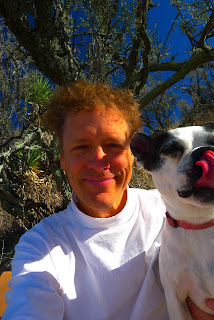Once upon a time, there lived two remarkably gifted boys.
Among their many talents, they could fly like great soaring birds, they could
swim in the ocean like dolphins, and they could run like horses or camels
across forests and deserts and mountains. The boys were most happy when they
lived outdoors with wild animals, slept under the starry sky, ate wild
mushrooms and drank snowmelt from mountain streams.
The boys knew they were special. Other people could not fly,
nor had anyone else seen the awe-inspiring mountaintops and coral reefs that
the boys frequented and contemplated. The boys thought that people should celebrate
their abilities, perhaps even revere them as demigods, but the boys lived in a
strange time and place. Years earlier, before the boys were born, during a time
known as the Great Shaming, people suffered such terrible discomfort,
difficulty and insecurity that they collectively decided to dedicate their
lives to the avoidance of such suffering in the future. People were now so
preoccupied with securing their comfort and convenience that they had no time
or energy to appreciate the boys or their remarkable abilities.
The boys, unaware of the Great Shaming or people’s singular preoccupation
with avoiding suffering, were very sad that people did not recognize them as
exceptional and concluded that perhaps there was something wrong or defective
with themselves. They abandoned their life in the wilderness that made them
happy and set out to make themselves useful and valuable to people. They discovered
that they had yet another remarkable gift - they could sense and anticipate
people’s feelings – and they quickly mastered the ability to chameleon
themselves into whatever people wanted them to be, usually a provider of
comfort, convenience and security.
Being useful and valuable to people was validating for the
boys, but a vague, chronic sadness settled in them. They missed the wilderness,
but after years of living among people, they feared that solitude in nature
would be more unbearable than loneliness surrounded by people. They had forgotten
many of their gifts, taken on people’s fear and shame, and become attached to the
validation they earned from people.
To lift their spirits, the boys would occasionally make
small ventures into the wilderness. One bright, sunny day they were flying over
a desert mountain and one of the boys flew straight into the sun. The sun
burned off everything the boy had accumulated and returned him to his original
being. Suddenly liberated from the oppressive burden he had forgotten he
carried, the last remnant of the boy, the feeling of joy and ecstasy, returned
to his beloved wilderness, not as the boy, but as nature itself.
The remaining boy was profoundly sad. He had lost his kindred
spirit. He realized for the first time that his vague, chronic sadness was
because he would never receive what he wanted more than anything - to be loved
as his authentic, remarkable self; that people were indifferent to his authentic
self; that he had wasted years of his life chameleoning himself to be useful
and valuable to people to earn their validation in lieu of their love for his
authentic self. He became disdainful of people’s fear and shame and their petty
attempts to avoid suffering. He longed to return to a life of solitude in the
wilderness, but was filled with self-contempt when he found he lacked the
courage and the confidence to do so.
The boy passed many unhappy years, continuing to make
himself useful and valuable to people, earning their validation, but sometimes
wishing for the liberation his kindred spirit had already achieved. And then,
one bright, sunny day, the boy ran up the desert mountain where he had last
seen his kindred spirit and stood naked on the mountaintop, bathed in the
sunlight. He asked the sun to burn off everything he had accumulated and return
him to his original being, and indeed, the sun burned away his attachments, his
fears and his desire to be loved, but it did not return him to his original
being. As he descended the mountain, he realized he was no longer a boy, but
was now a man.
The man returned to the wilderness and lived in solitude. He
contemplated the sky and the oceans, the deserts and forests and mountains, the
wild animals. He contemplated his desire to be loved and celebrated. He
contemplated his unhappy years of living with people, their fear of suffering
and consequent efforts to separate and insulate themselves from nature, to
domesticate and control nature. And he found himself awe-struck by the beauty
of his experience and decided he would communicate his experience to people by storytelling,
with the goal of burning away their attachments and fears and desires, of transforming
their beliefs and behaviors so that they might live more, live better. And he did
so, with tremendous gratitude to his kindred spirit for showing him the way.

















